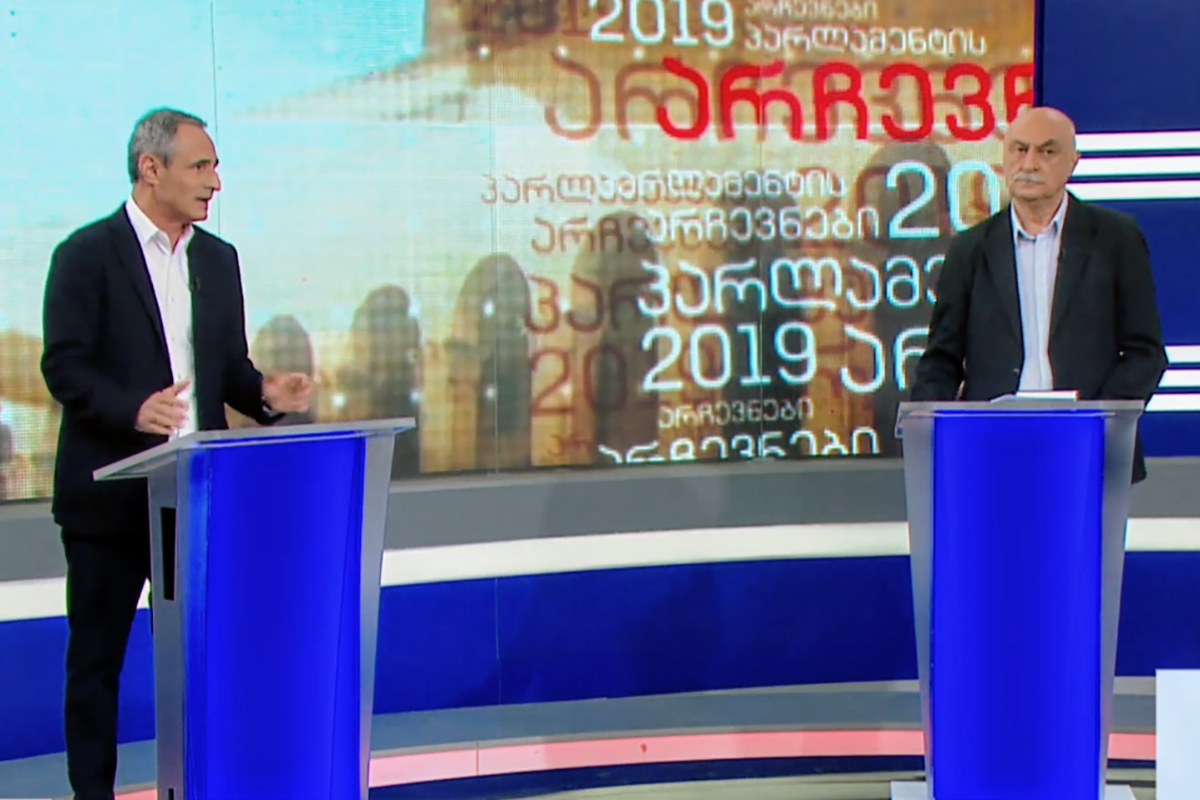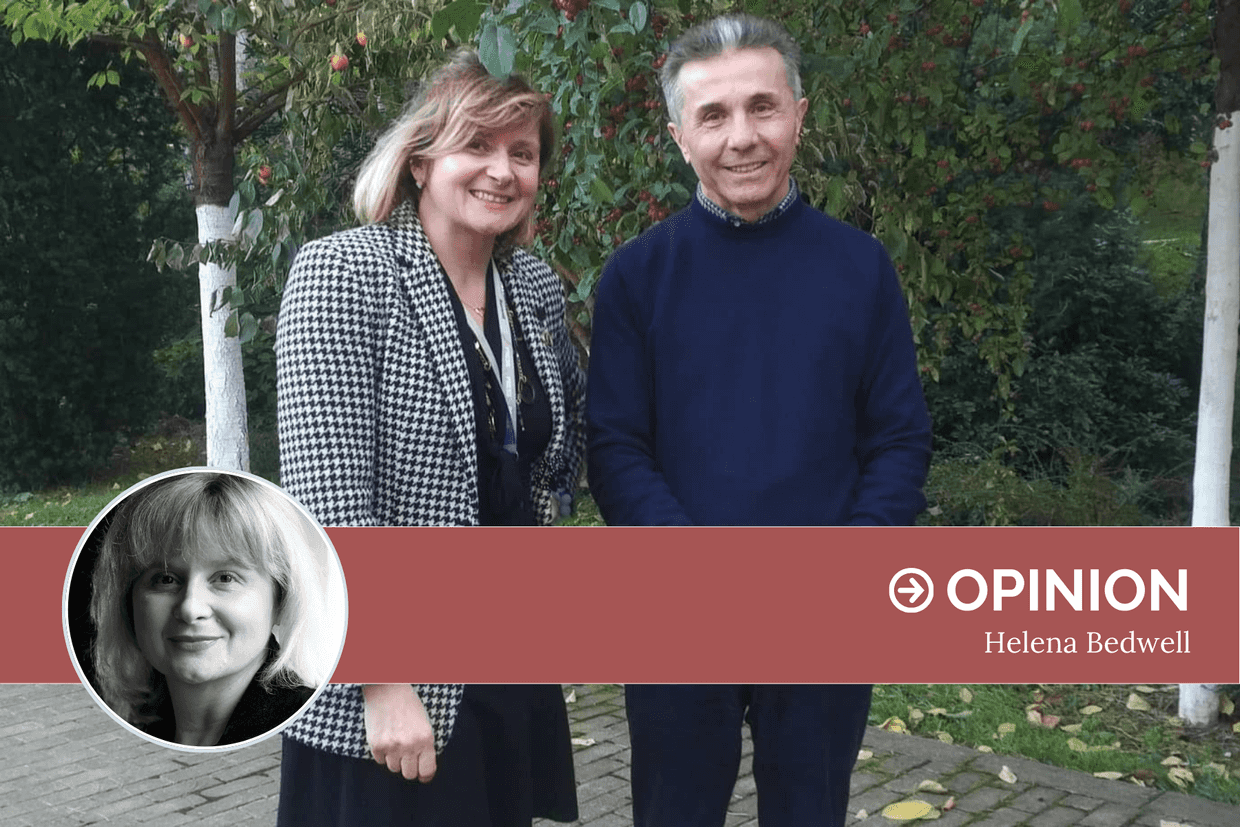Opposition candidate refuses to congratulate opponent after Tbilisi by-election loss


The opposition candidate in Sunday’s parliamentary by-election in Tbilisi has refused to congratulate his opponent from the ruling Georgian Dream party after losing the vote, accusing him of running a dirty campaign.
With all the 31 precincts counted, the Georgian Elections Administration (CEC) has announced Vladimer Kakhadze, the ruling Georgian Dream’s candidate, the winner of the by-election run-off in Tbilisi’s Mtatsminda District.
According to results, Kakhadze beat Shavgulidze, the candidate from the opposition European Georgia — Free Democrats bloc, with 62% of the vote (11,000 votes) to 37% (6,600 votes).
According to CEC, the turnout was 41%, with 18,000 of 44,000 eligible voters casting their ballots in Sunday’s vote.
The election went to a second round after Shavgulidze successfully prevented the ruling party’s candidate from winning outright in 19 May’s vote.
In comparison to the first round, Kakhadze added over 4,700 votes while Shavgulidze managed to mobilise an additional 1,200 voters.
‘Nothing to congratulate’
At a press conference after the polling stations closed at 20:00, Shavgulidze reiterated his team’s earlier claims made throughout the day that Georgian Dream used ‘street criminals’ to pressure voters.
‘This was an uneven fight with the criminal world’, Shavgulidze said, thanking his supporters.
He refused to congratulate his opponent, saying ‘it was not a win’ and hence, ‘there is nothing to congratulate’.
On Monday, Elene Khoshtaria from the European Georgia party presented the media with footage allegedly portraying ‘criminal authorities’ mobilised at polling stations, one of whom ‘attacked’ her and three associates.

Khoshtaria said that Gelovani was an employee of the state-owned Georgian Railway Company. She claimed this showed that the ruling party used people appointed to state institutions as party coordinators to track voters with lists and pictures.
European Georgia named Nodar Doborjginidze as one of the ‘outlaws’ intimidating voters at Mtatsminda’s No 13 and No 14 precincts.
Police said they had opened an investigation into an incident reported by European Georgia activists Kato Kopaleishvili and Ani Baramidze, who claimed on Sunday that Georgian Dream party activist Ani Gelovani attacked them in front of one polling station.
In their preliminary assessment, the Tbilisi office of the International Society for Fair Elections and Democracy (ISFED) noted ‘a tendency of tracking voters at the polling stations’ by Georgian Dream party activists and some affiliated groups registered as observer organisations. ISFED said this was a ‘continuation of the negative practice of possible control of voters’ will’.
ISFED identified two confrontations at two different precincts throughout the day.
Overall, the group found ‘the voting and counting process mostly free from major violations’.
‘Slander campaign’
Speaking at the press conference on Sunday, Shavgulidze accused Georgian Dream chair and former prime minister Bidzina Ivanishvili of waging ‘an incredibly intensive slander and dirty PR campaign’ through pro-government TV channel Imedi.
After casting his ballot at the fourth precinct on Sunday, Ivanishvili hailed the run-off as ‘something that Europeans like’, indicating it was a sign of competitive and democratic elections. He also hailed ‘both candidates’ for a ‘cultured’ election campaign.
In April, Ivanishvili spoke extensively about Shavgulidze asking ‘How much of a hero he is?’, questioning his record as a lawyer in the Sandro Girgvliani case.
Shavgulidze was portrayed by his campaign as a candidate with a convincing record of a lawyer going after cases of human rights violations committed by the previously ruling United National Movement party.
Among the most prominent was Girgvliani’s case, in which he represented the family of a young man, Sandro Girgvliani, killed by members of the State Security Service in January 2006.
Five years later, the European Court of Human Rights ruled the investigation into Girgvliani’s killing was compromised by the government of the then-ruling UNM Party.
In January, Tbilisi City Court found that third Georgian President Mikheil Saakashvili abused his office by pardoning the convicted murderers of Girgvliani in 2008.
As a result of monitoring the election campaign on Facebook, ISFED noted a negative campaign trying to discredit Shavgulidze with sponsored posts. The messages, paid for by several Facebook pages with unknown owners, denounced Shavgulidze for allying with former members of the UNM currently in the European Georgia Party, which broke away from the UNM in January 2017.
[Read on OC Media: Facebook trolls and fake news pages: the new ‘enemies’ of Georgian democracy]









